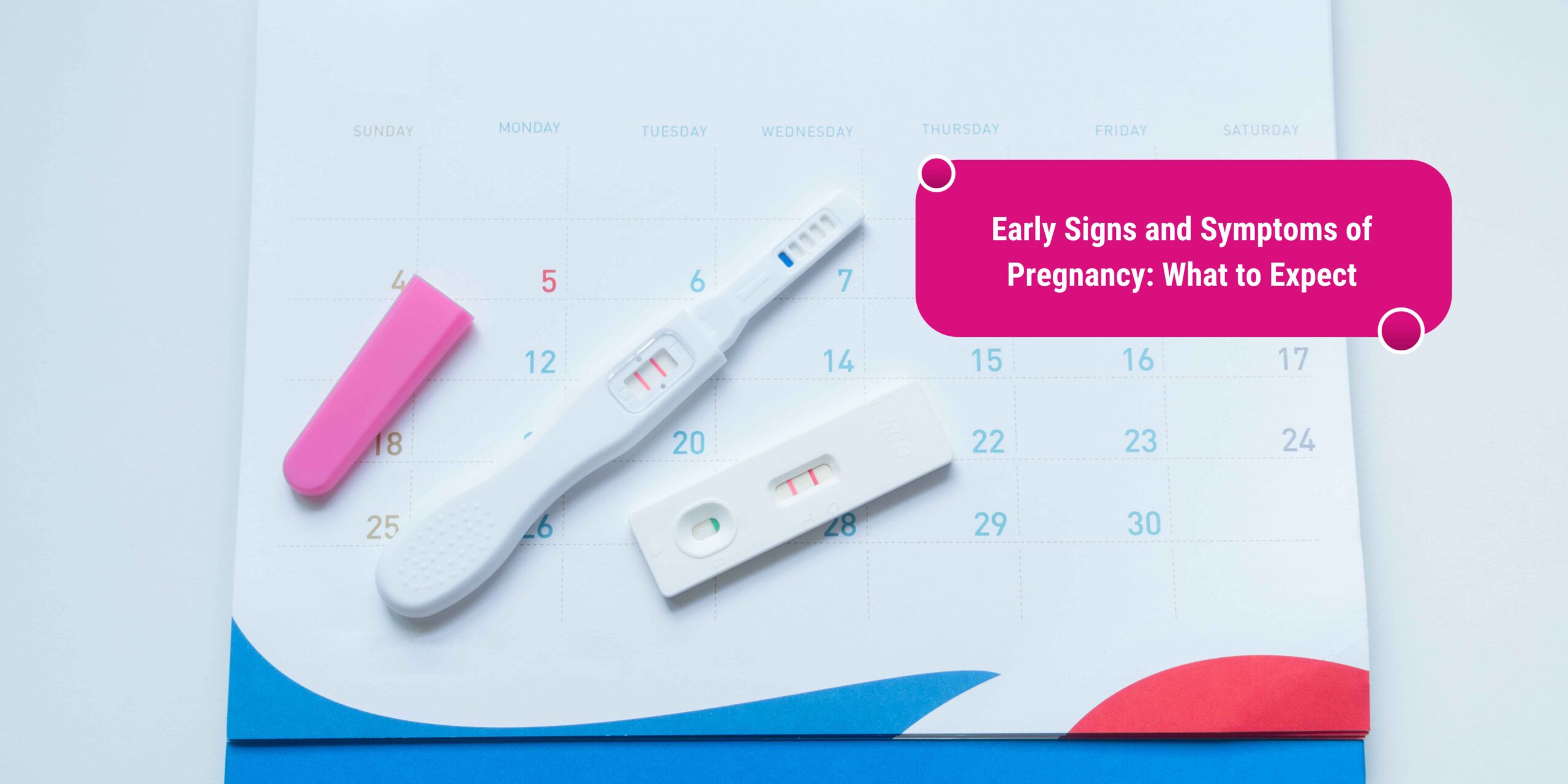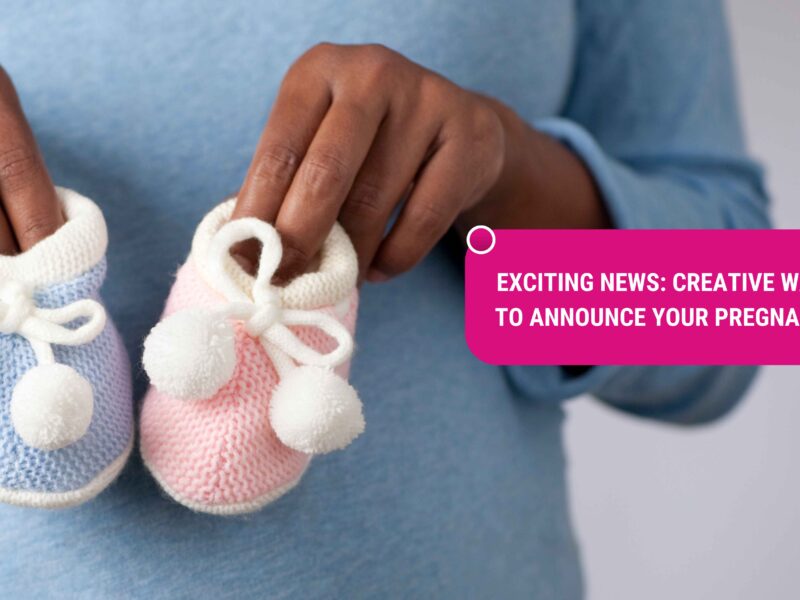The only way to confirm your pregnancy is through a medical test. Still, many women experience early signs and symptoms that may indicate a pregnancy. Each woman’s experience can be very different, so this piece isn’t a “one size fits all” description. Instead, this discussion focuses on the potential early signs of pregnancy, plus a few of the body’s likely physiological changes due to increased pregnancy hormones.
If you are sexually active, knowing the potential signs and symptoms of early pregnancy can help you prepare and manage your reproductive health. Early pregnancy could be one of the most exciting or anxiety-ridden times in your life, depending on whether it was planned or unplanned. In either case, knowing what is happening to your body during this crucial time will help you take positive steps. It will also help you understand whether you need to confirm your pregnancy, change harmful behaviors, see a healthcare provider, or begin prenatal care.
Understanding Pregnancy
There are three stages to pregnancy, known as trimesters: first trimester, second trimester, and third trimester. Trimester means “three months.” The first trimester is week one to week 12, the second and third trimesters are calculated differently depending on the mother-to-be. Pregnancies are divided into three parts, each lasting three months. The first trimester is the most fragile time of pregnancy as the risk of miscarriage is high. The second and third trimester are when most changes to your body occur. Some women have health problems that arise during pregnancy, and other women have health problems before they become pregnant that could lead to further problems. There are some health problems that are more common or higher-risk for pregnant women than for other women.
What is pregnancy? Pregnancy happens when an egg is fertilized by sperm and implants itself in the wall of the uterus. A pregnancy usually lasts about nine months from the day of fertilization, measured using the date of the last menstrual period. This is also how pregnancies are classically tracked, with 40 weeks being the average. Estimated due dates are more like approximations and only about 5% of women deliver on their due date. An average pregnancy actually lasts 38 weeks or 268 days if we could know exactly the date of conception. Childbirth on or before 37 and after 42 weeks is considered premature and post-term respectively.
Definition and Stages of Pregnancy
In the first trimester, the baby’s brain, spinal fluid, heart, and bones begin to grow. Also, a fluff called Lanugo grows in increments, which will prevent the baby from getting cold and facilitate the transition process when the baby’s body is forced out. In the second trimester, more complete growth of the baby’s organs will occur, although the birth process is still high. Pregnant women’s abdomen begins to enlarge and the baby is more often moving. In the third trimester, the fetus now weighs about 2-4 kg and is able to live outside the womb. At this time, the baby’s head has entered the pelvis and the meat is mainly made of fat. Gathering information about pregnancy symptoms, signs and conditions is important. Common pregnancy symptoms and signs include missed period, nausea, urinary frequency and breasts tend to be bigger, while below are the early signs and symptoms of pregnancy.
Pregnancy is the period of prenatal growth from the moment of conception, when the divided egg has passed through the fallopian tube, until the birth of a fetus called a baby. This period is when a woman’s body nurtures and protects the developing baby. Pregnancy is divided into three equal periods; each of them is called a stage, also called a trimester. The first trimester is the first 3 months of pregnancy and the second trimester is the second 3 months and the third trimester is the last 3 months. Each trimester has a name related to the development of the fetus.
Common Early Signs and Symptoms
Many over-the-counter pregnancy tests can show if you are pregnant on the day your period is supposed to start, or about 2 weeks after you think you conceived. Like breast changes, the intensity of breast pain differs depending on the person. The time you feel tired or sleepy, as well as the time you feel tired, can vary based on the woman. During the first trimester, mood swings may begin as early as the second week of pregnancy and may come and go throughout your pregnancy. First-time pregnant women are more likely to report a missed period than women who have had at least one child. There are a few signs and symptoms of being pregnant before you even miss your period, but these are not conclusive, and many other things can explain them. Early signs and symptoms can be different from woman to woman. If you recently had sex and notice any of the signs or symptoms of pregnancy, take a home pregnancy test or see a healthcare provider. Be sure to use birth control if you are not ready to get pregnant.
Common early signs and symptoms of pregnancy: Implantation often occurs between 6 and 12 days after ovulation and may happen earlier or later. A missed period is often one of the first signs of pregnancy. You may miss your period if you have a low or high body mass index (BMI). Nausea (also called morning sickness) and vomiting are two common early signs of being pregnant. Sore, tingly or tender breasts, as well as the indication of pregnancy. Feeling tired or more easily exhausted than usual is another early sign of pregnancy. Pregnant women may feel more emotional or moody than women who are not pregnant. Each person’s pregnancy experience is different, and a woman’s own pregnancy may be different from her previous pregnancies.
Missed Period
A missed period can be a common early symptom of pregnancy, with many signs and symptoms verifying this possibility. It is not unusual to feel other signs of early pregnancy before a missed period. A missed period can happen for various reasons. Even healthy people who have a regular menstrual period without any medical issues can experience a delayed period at least once in a point in their lives due to various reasons that can cause hormonal changes. However, if PMS is expected and other symptoms are absent, a missed period can be an early sign of pregnancy.
As an early indicator of pregnancy, a missed period is generally the most common sign of the impending changes. Interestingly, for some, a missed period alone can raise concerns of unplanned pregnancies. Yet, it can also be from various reasons and is not always an early indicator. How important is a missed period when considering other early symptoms? Many factors can cause a missed period. Stress can significantly affect the normal timing of a menstrual cycle. Meanwhile, weight loss, weight gain, and other imbalances in one’s lifestyle can also cause the menstrual cycle to be irregular or prolonged. Menstrual cycles can vary depending on genetics, the environment, hormonal balance, and physical condition. The timing and length of a menstrual cycle may be different for each individual. However, a missed period alone can also be an early sign of pregnancy. When menstruation is delayed, causing or possibly caused by other symptoms, women are recommended to test for pregnancy. If a woman is not pregnant, some of the causes listed may be the reason behind her delayed period.
Nausea and Vomiting
No two women are alike, therefore not everyone will have the same physical signs and symptoms at the same time. Women who have never previously experienced the ailment are more likely to suffer from it now. According to some surveys, women with a history of ever being sick and a strong family history have an increased risk. It could be worse for some women who are overweight, have diabetes, are stressed, have a thyroid imbalance, or are carrying twins or triplets. Nausea is prevalent and troublesome among some pregnant women. Symptoms begin in the sixth week of pregnancy for most women. These pregnancy signs and symptoms typically last a week to a month. The nausea that happens in the early signs and symptoms of pregnancy can usually be managed by eating small meals throughout the day. You can also try snacking on a cracker or slice of toast before getting up in the morning to help prevent nausea.
Nausea and vomiting are often the first signs that a woman is pregnant. A survey found that nearly 70% of women were ill in the mornings during the early stages of pregnancy. Although the term “morning sickness” may lead you to believe that you only vomit first thing in the morning, this is not the case. Nausea and vomiting can occur at any time of day for some women. Studies show that approximately 6% of women experience morning sickness during the day but not in the morning. The symptoms of morning sickness are thought to be due to rapidly rising levels of estrogen, which qualifies it as one of the early signs and symptoms of pregnancy.
Breast Changes
3. Increase in Size: – Breasts often get gradually bigger and heavier as the pregnancy advances. – Sometimes the change can be dramatic. The average participant in a study on well-endowed pregnant women experienced a 3-cm increase in breast diameter between pregnancy and pre-pregnancy during pregnancy.
2. Swelling and Tenderness: – Breasts may become very tender, especially around the edges and the areolae (the darker part surrounding the nipples). – A woman should be fitted with maternity or breastfeeding bras before the end of the first trimester, and her breasts can come back down to the size they will be for the rest of her pregnancy. – Buy one that fits really comfortably on the biggest hook. This will allow her to tighten it as her ribs expand.
1. Tenderness: – The hormone progesterone is produced early in pregnancy. Sometimes the development of new glands and high concentration of milk proteins in the breast tissues occur later. – The hormones estrogen and progesterone begin to prepare their breasts for breastfeeding during the first trimester, producing more fat, blood, nourishment, immunity boosters, and milk-making cells. These changes can make early-practice breasts feel sore and heavy.
A breast is an exocrine gland that is located on the chest. The breasts consist of adipose and glandular tissues. At the onset of pregnancy, various hormonal changes begin to take place inside the body of an expecting mother. Under the effect of hormones, women experience various changes in different parts of their bodies during pregnancy, including their breasts. Some of the earliest changes that women experience are in their breasts. Here are some of the changes that women experience in their breasts.
Fatigue and Mood Swings
Mood swings are in many ways a combined symptom, as they can be caused by all the other symptoms and changes in your body. Women report feeling extremely irritable, weepy, angry, teary, emotional, or just not feeling like themselves. This symptom happens in different ways with different individuals. Early in the pregnancy, it can also be the only symptom present. There is no main cause of mood swings, but psychiatric experts link emotional fragility with feelings of helplessness, fear of the unknown, changes in social role, and changes in body image. During pregnancy, moms are susceptible to ‘blues’ when facing drastic physical changes, common discomforts, or problems of body imbalance.
Fatigue can start as early as one week after conception, but it will most likely happen around weeks four to six. Fatigue can be both physical and emotional, but it is usually an overall feeling that affects a woman’s daily life and well-being. Pregnancy-related fatigue and exhaustion are often the cause of hormone and energy-level changes, as a woman’s body is adjusting to the growing fetus and the intense work of establishing a new being within herself. Consequently, the body is using more energy, and the woman must strike a balance between this extra need and making sure she does not become too fatigued. Emotional feelings related to pregnancy can contribute to a state of fragile well-being. A woman in the early stages of pregnancy already has many emotions and thoughts to contend with and handle. These intense mental activities may make her tire earlier and become fatigued more easily, as a pregnancy takes up a substantial amount of mental and emotional resources.
Less Common Signs and Symptoms
Morning sickness, a common complaint during pregnancy, can present in a variety of forms. Nausea, vomiting, excessive vaginal discharge, and diffuse breast tenderness were reported one week prior to a missed period by 92%, 62%, 18%, and 12% of 35 healthy women, respectively. “Hangover,” “sea-sick,” and “bloated” were three adjectives used by 37 pregnant women to describe their sense of premature discomfort (Figure 3). Gastric motility is also affected by elevated levels of hCG and gastrin, leading to delayed gastric emptying. The patient may undergo considerable hardship before hCG values plateau or decline around 14-16 weeks gestation. Other intolerable symptoms due to elevated estrogen and progesterone levels may include an exaggerated sense of smell, food aversions, or cravings. Food aversions and cravings are also caused by an increase in hCG, and a positive pregnancy test is frequently corroborated with a high level of serum hCG. In the urine, hCG levels are detectable 13-14 days after ovulation or conception, coinciding with the early signs and symptoms of pregnancy.
There is a wide range of signs and symptoms during pregnancy, from common complaints such as breast tenderness and fatigue to more unique manifestations such as excessive salivation. A number of less common and less recognizable signs of pregnancy are highlighted in this section. Increased urgency of urination may be seen as early as two to three weeks gestation, caused by the secretion of the hormone human chorionic gonadotropin (hCG). This hormone, which is secreted in large quantities during early pregnancy, coats the interstitial cells of the corpus luteum and maintains the production of estradiol and progesterone, synchronous with the uteroplacental circulation. During pregnancy, the corpus luteum (a cyst formed in the ovary from a mature follicle that has ovulated) grows to support gestation and increases gonadotropin resistance following conception, leading to increased hCG release. Consequently, hCG levels are detectable in the bloodstream as early as a few days after conception, increasing serum levels every 48-72 h during the first few weeks of gestation. As hCG levels continue to rise, serum and urinary concentrations rise, resulting in frequent urination, an exaggerated circulatory state, and possible dehydration.
Frequent Urination

Often, the hormonal changes in a woman’s body can have an effect similar to a diuretic. A diuretic can stimulate urine production and cause the body to excrete excess fluids. Frequently, women experience this due to an increase in sodium levels in the blood as well as an increase in blood volume. It’s also possible that a woman’s nerves are more or less sensitive to the symptoms due to her previous experience. Perspective plays a significant role in a variety of reactions. Some research suggests that women who have never been pregnant are less likely to realize these types of changes. This may occur regardless of how obstetricians advise expectant mothers to regard changes or potential discomforts. The advice “that it’s just part of pregnancy” may work for someone who already understands what to expect, but someone who doesn’t may feel strong discomfort.
Frequent urination will generally come later in pregnancy, but some women may experience it early on. The body goes through a lot of changes when it’s pregnant, and parts of the body that wouldn’t normally interact have to start doing so. As a woman’s body prepares for pregnancy, it creates the hormone human chorionic gonadotropin (hCG). This necessary hormone will make its way into the mother’s bloodstream and, after being filtered by the kidneys, into the mother’s urine. This doesn’t happen when a woman isn’t pregnant; in all other cases, urine is free of hCG. The presence of hCG in the urine will make the color appear to change. This interplay between mother and fetus can already begin within the first 2 weeks after conception. It then reaches a new high at 8-11 weeks of pregnancy before tapering off to a reasonable level. An increase in the body’s blood flow will trigger the kidneys to produce more urine, which will affect the entire urinary system, including the bladder. With the uterus expanding as the baby grows, it will press down on the bladder causing the mother to need to urinate more frequently.
Food Aversions and Cravings
According to an American research, women who have experienced a food craving or aversion during the early weeks are more likely to have had a positive pregnancy test. Despite this, studies have found that food aversions and cravings have no effect on an unborn child’s diet. Some women developed food aversions to meat and other protein-rich foods while they were expecting, according to Beck, while others experienced increased sensitivity to bitterness, which made foods like green, leafy vegetables, caffeine, and spicy or flavored foods unappealing. These researchers discovered that many healthful foods that seem OK could still be triggering nausea when given to a pregnant woman who is unaware that she is pregnant. In her work, she records having more food aversions than cravings. To balance things out, expectant mothers were advised to consume smaller, more frequent meals and to apply portion control to the foods they were able to tolerate in order to avoid unhealthy weight gain.
Food aversions and cravings are among the less common signs of pregnancy. An overwhelming desire for a specific type of food could indicate that an expectant mother requires certain nutrients. It is unknown what causes pregnancy cravings. Some experts believe that our bodies require additional nutrients when we are pregnant, and that we then crave foods containing those nutrients. Others feel that fluctuating hormones are to blame, particularly as food cravings and aversions are more frequent during the early stages of pregnancy. After conception, it can take several days for the fertilized egg to implant into the uterus and begin secreting the hormones associated with pregnancy. In some women, food cravings and aversions can start to appear as early as that point.
When to See a Doctor
Hyperemesis gravidarum (HG) is especially dangerous during the early stages of pregnancy, as both the mother-to-be and her child are rendered malnourished. According to information from the American Pregnancy Association, in severe cases of HG, this phenomenon can potentially lead to miscarriage. If any symptom of pregnancy worries you, there is no such thing as a “dumb” or “silly” question when your, or your baby’s, well-being is on the line. If a pregnant woman has a humming or buzzing in her ears, is seeming to have trouble hearing you, or is constantly bothered by odd special or auditory sensations, you may want to urge her to have a physical conducted and check for an ear infection or inner ear condition known as tinnitus.
In any medical situation, the most important factor to be taken into consideration is the health and safety of the mother and baby. Many of the symptoms of early pregnancy are expected, and with a little time are even welcomed. However, this does not mean a doctor’s attention is not welcome if things seem inexplicably off, or if your symptoms are causing you any degree of concern. Some of the earliest signs of pregnancy are also the most concerning, such as the signs of a tubal pregnancy. If any of the common, early signs of pregnancy worsen or shift into something painful, uncomfortable, or creates a sensation of doom or fear, consultation with a healthcare provider is in order. This does not mean you’re “bothering” the doctor! Call promptly if you have severe nausea or vomiting: frequent vomiting can increase the threat of dehydration. Severe, non-stop vomiting can even be a sign of hyperemesis gravidarum.



